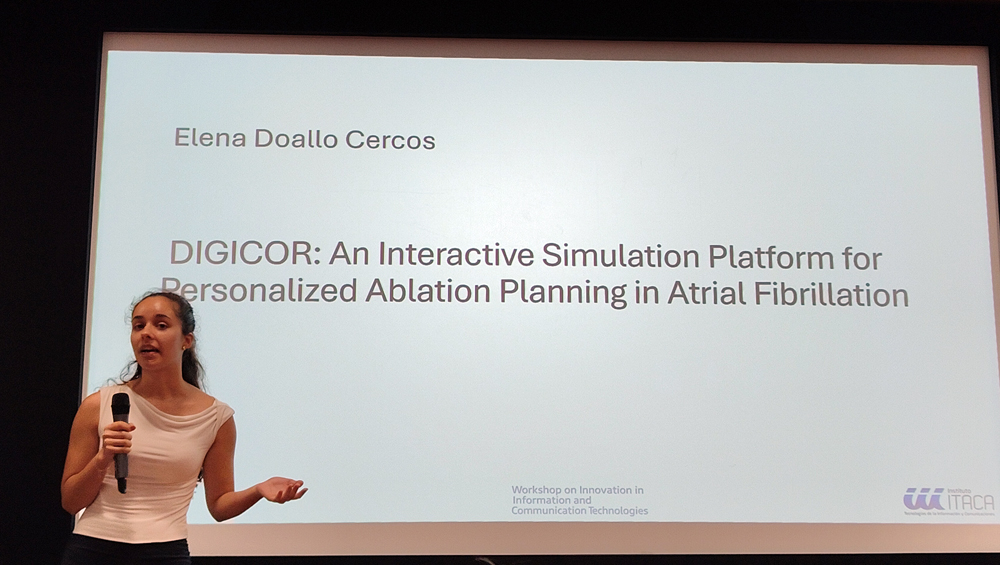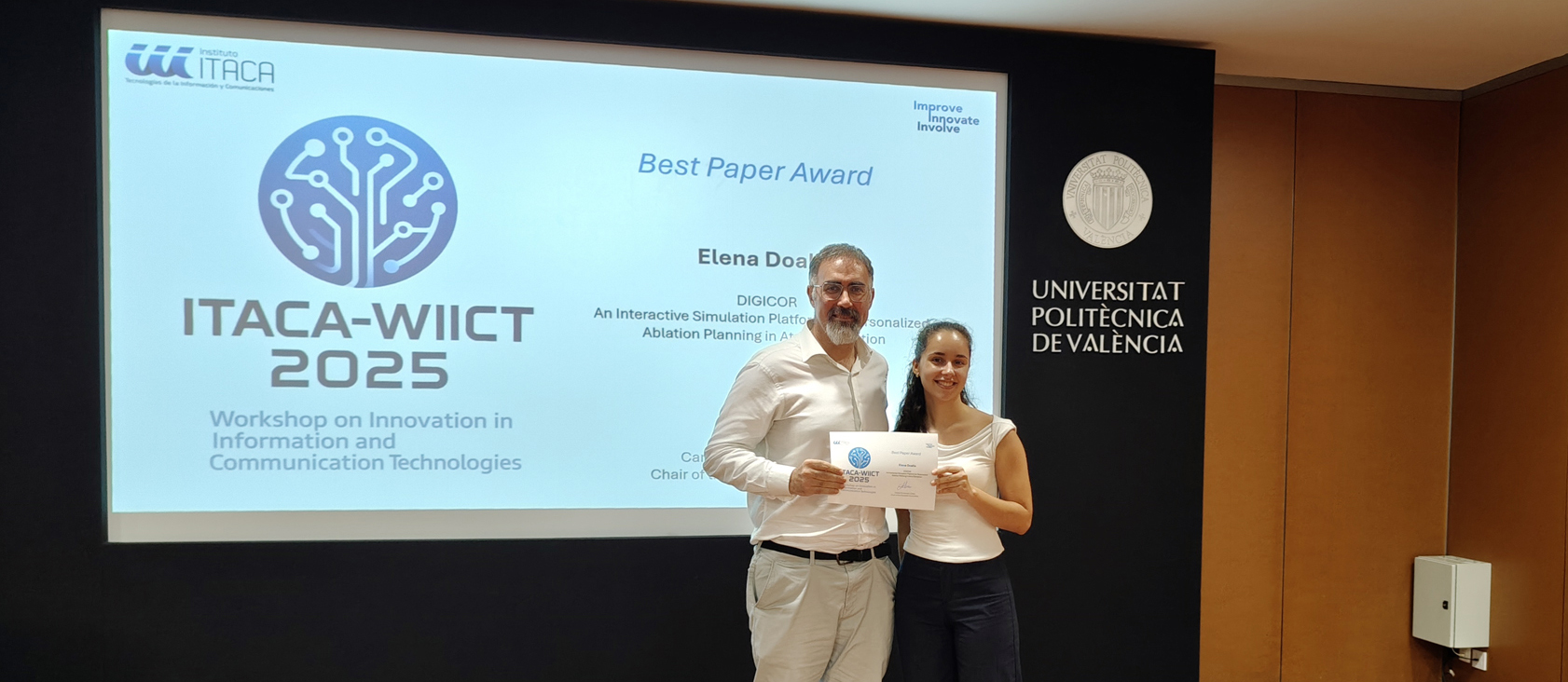Elena Doallo Cercós, a researcher from the COR group at the ITACA Institute of the Universitat Politècnica de València (UPV), received the award for best poster at the twelfth edition of the Workshop on Innovation in Information and Communication Technologies (WIICT), a scientific-technical meeting forum promoted by ITACA.
The award recognized her work on the development of DIGICOR, an interactive platform to improve personalized ablation planning for patients with Atrial Fibrillation (AF), one of the most common and complex cardiac arrhythmias.
“This heart condition requires highly precise treatments to improve the effectiveness and safety of the procedure. That’s why DIGICOR offers an innovative solution that could transform clinical practice,” says Elena Doallo, lead author of the study.
The work, directed by María S. Guillem Sánchez, director of ITACA, and Raúl Moreno López, both from the COR-ITACA group, stems from research carried out in the EPICA+ project. This project focuses on the use of volumetric electrocardiographic mapping and personalized computational models to improve therapies for complex arrhythmias.
“This line of research is part of the development of cardiac digital twins and functional simulation tools aimed at precision medicine,” says Elena Doallo.
A pioneering tool for more personalized medicine
DIGICOR enables specialists to simulate in real time the effects of ablation lesions on cardiac tissue, facilitating comparisons of different therapeutic strategies before intervention. This ability turns simulation into a practical, objective tool for supporting clinical decision-making.

“Unlike other tools, DIGICOR allows virtual lesions to be applied and their effects observed almost instantly. This immediate response makes simulation a dynamic resource to optimize the therapeutic strategy,” says Elena Doallo.
In addition, the platform does not merely reproduce the heart’s anatomy: it incorporates functional information that allows for precise identification of the arrhythmia’s origin. In this way, specialists can act directly on the sources that sustain it, thereby reducing the extent of treated tissue and increasing the procedure’s effectiveness.
“These features offer a direct benefit to the patient by improving ablation success rates, reducing the need for reinterventions, and increasing the safety of the procedure. For clinical staff, DIGICOR provides an objective and flexible tool that facilitates the transition from standardized protocols to a truly personalized approach. Meanwhile, the healthcare system benefits from more efficient use of surgical resources and a potential reduction in costs associated with complications or recurrences,” concludes the ITACA researcher.
Noticia elaborada por ITACA FORWARD, financiada por Ivace+i Innovación y la Unión Europea a través del Programa Fondo Europeo de Desarrollo Regional (FEDER) Comunitat Valenciana 2021-2027 (Referencia del proyecto: INNVA2/2025/17)




